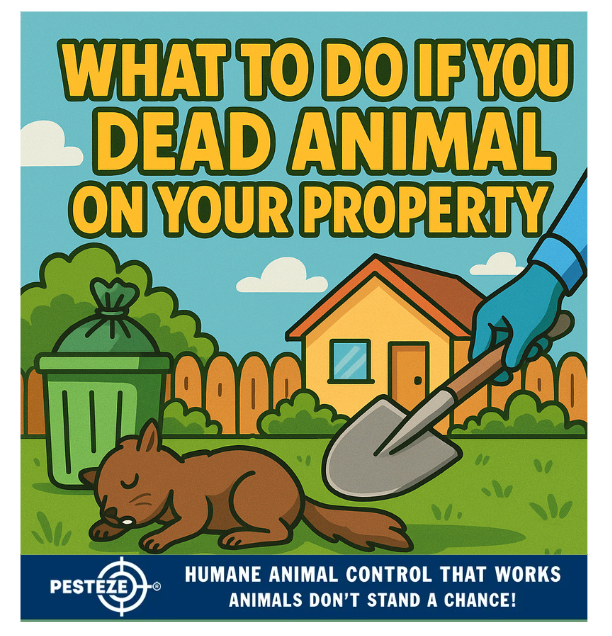WHAT TO DO IF YOU FIND A DEAD ANIMAL ON YOUR PROPERTY

WHAT TO DO IF YOU FIND A DEAD ANIMAL ON YOUR PROPERTY
SUMMARY
Discovering a dead animal on your property can be unsettling and may pose health risks. This guide provides safe, humane, and legal steps for handling and disposing of dead animals.
FEATURES
-
Protect yourself: Wear gloves and avoid direct contact.
-
Identify the animal: Determine if it’s a pet, pest, or wildlife.
-
Check local laws: Disposal rules may vary by area.
-
Use proper disposal: Bag and seal the carcass before removal.
-
Clean and disinfect: Sanitize the area to prevent diseases.
-
Call professionals: Contact animal control if unsure.
GUIDE DESCRIPTION
Finding a dead animal on your property is not only unpleasant but can also carry potential health concerns. Knowing what to do if you find a dead animal on your property ensures safe handling, legal compliance, and peace of mind.
The first step is to protect yourself. Always wear disposable gloves when handling a dead animal and avoid direct skin contact. If possible, use tools such as a shovel to limit handling.
Next, identify the animal. If it is a neighbor’s pet, try to contact the owner. For wildlife or pests, you may need to follow different procedures depending on size and species. Small animals like squirrels or birds may be handled at home, but larger animals such as deer should be managed by professionals.
Before removing the animal, check local regulations. Some areas require reporting certain species, especially if they may carry diseases like rabies. Your local animal control or public health department can provide guidance.
For safe disposal, double-bag the carcass in heavy-duty plastic bags and seal tightly. Place the bag in an outdoor trash bin designated for waste collection. Never dispose of animals in compost piles, open fields, or water sources.
After removal, it’s critical to clean and disinfect the area. Use bleach or a strong disinfectant to sanitize surfaces where the animal was found. This helps prevent the spread of parasites, bacteria, or viruses. Wash your hands thoroughly even if you wore gloves.
In cases where the animal is too large, or if you feel uncomfortable handling it, call professionals. Animal control services, wildlife agencies, or pest removal companies are equipped to handle carcass removal safely and responsibly.
By taking these steps—protecting yourself, following disposal laws, sanitizing the area, and contacting authorities when necessary—you ensure your property remains safe, clean, and free of health hazards.
- Saneeth Thota


Comments 0